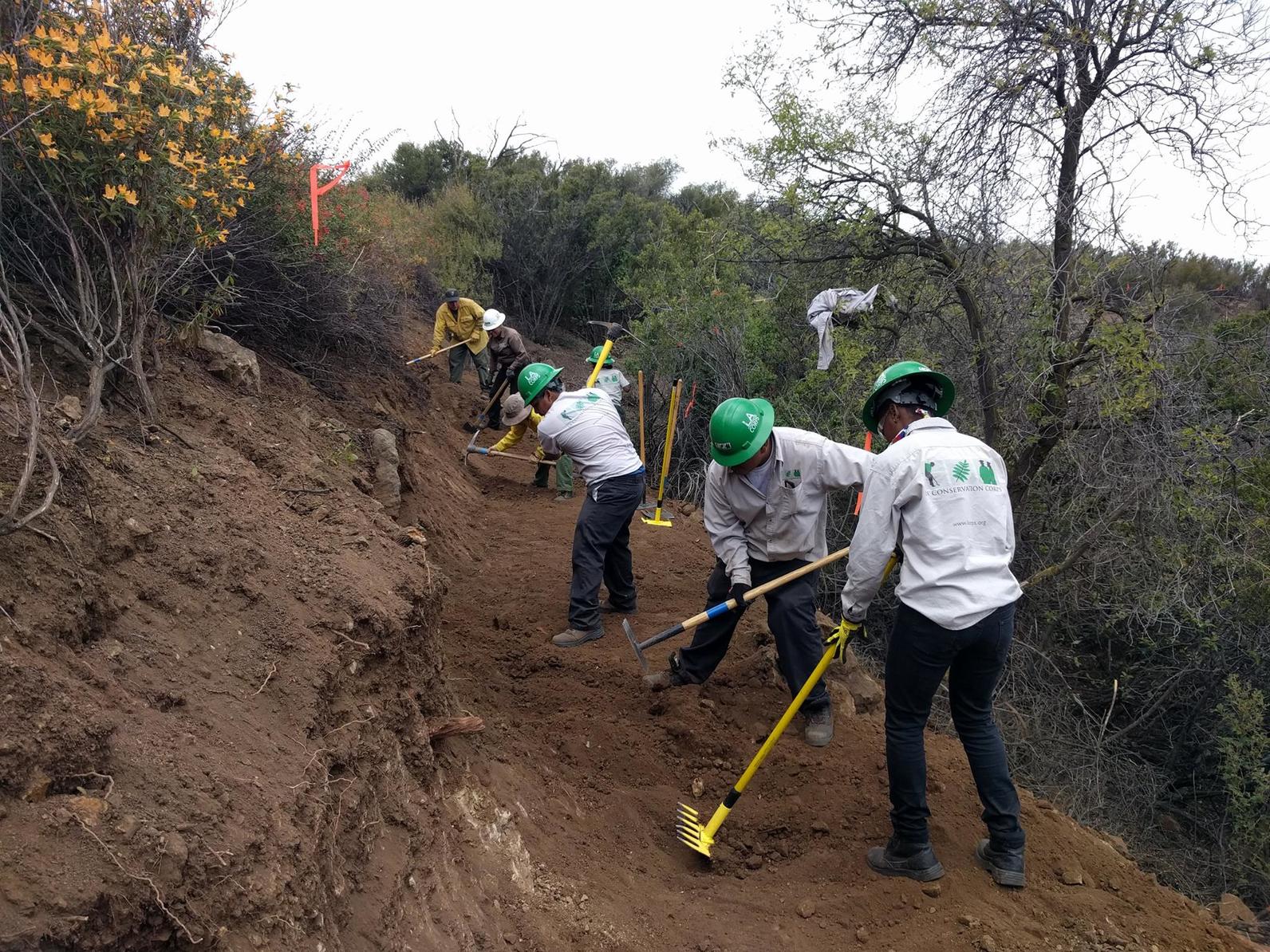
All seems quiet at Debs Park in Los Angeles at just past 8 am. There seems to be nothing but the sound of birds chirping in the dull morning heat – until you look down a hillside. There is already a group of young workers with shovels and hardhats, busy with the park’s native plants.
The Audubon Center at Debs Park continues to strengthen its relationship with the Los Angeles Conservation Corps thanks to a grant from the Fund 2 Foundation. The grant funds 10 members of the Corps to help with maintenance of the park while also teaching them more specialized skills in restoration. The program will span two separate eight-week periods.
“We’re working to forge a deeper partnership that gives the Corps more of a presence,” says Center Director Marcos Trinidad. “We’re trying to create a pipeline for jobs and job training that also allows the kids from the surrounding neighborhood to connect with nature in their community.”
The LA Conservation Corps is the country’s largest urban conservation corps and has been involved with the Audubon Center since it originally opened in 2003. The corps focuses on providing jobs to urban youth and young adults within their own communities. At Ernest E. Debs Regional Park, it has been involved mostly with graffiti abatement and helping to clean streets and alleys.
With the help of the Fund 2 grant, the Corps is collecting native plant seeds from the park and planting them in the Center’s native nursery. The Center staff is also ensuring the Corps members understand why they place the plants in certain areas and how the birds and other animals interact with the flora. In step with Audubon’s mission, they want to make sure the workers are aware of how to create bird-friendly communities.
Trinidad also says that the Center has been working on a lot of active restoration, which involves directly interacting with the ecosystem. But the staff is also excited about working with the Corps for its potential to help with passive restoration—identifying and removing underlying threats to the ecosystem. The Audubon Center at Debs Park knows that in order to keep the park’s ecosystem happy and healthy, it needs to address community issues such as homelessness and substance abuse in a way that’s considered unconventional for environmental organizations. Because the Corps is from the community, they have a unique understanding of these systemic issues.
For instance, Trinidad says that removing homeless encampments without tackling the issue of homelessness itself will just result in the homeless population moving to other areas of the park.
“Because the LA Conservation Corps is from the community and cleans a lot of these areas, they know that issues like homelessness aren’t just an issue on the streets, but in open space too. They’re able to understand this on a different level than other people,” Trinidad says.
For Trinidad, the partnership with the LA Conservation Corps is part of a greater goal to keep the park vivacious enough for the community to enjoy. “If we don’t have a park to retreat to, it’s affecting our mental health, our physical health, and the way we culturally engage with each other,” he says.
By Elise Chen
Audubon para niños
¡Niños pueden explora el mundo de las aves con actividades, artículos, videos, y más!




